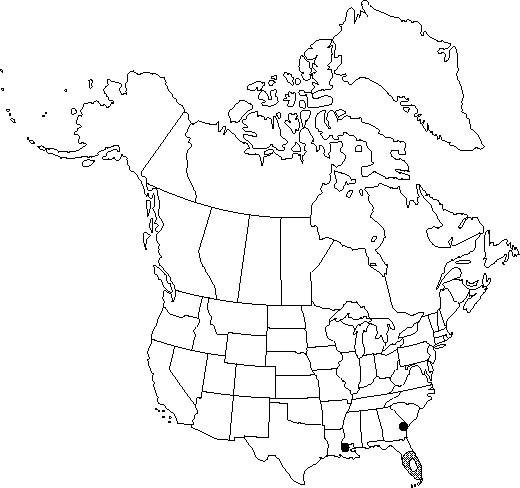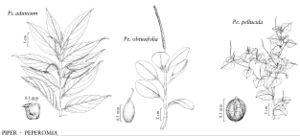Peperomia pellucida
in A. von Humboldt et al., Nov. Gen. Sp. 1: 64. 1816.
Herbs, annual or short-lived perennial, erect or decumbent, freely branched, 10-50 cm, glabrous, without black, glandular dots. Leaves alternate; petiole ca. 1/2 length of blade, glabrous. Leaf blade palmately 5-7-veined, broadly ovate to deltate, 0.6-4 × 0.5-3 cm, base truncate, rounded, or cordate, apex acute to slightly acuminate; surfaces glabrous. Spikes axillary, terminal, and opposite leaves, solitary, rarely 2-more, loosely flowered, 2-6 cm, mature fruiting spikes 1-2 mm diam. Fruits sessile, very broadly ovoid to globose, 0.5-0.7 × 0.4-0.5 mm, longitudinally ribbed with ladderlike reticulations; beak minute, conic, ca. 0.1 mm.
Phenology: Flowering all year.
Habitat: In shaded woods and around nurseries and greenhouses, along coastal plain
Elevation: 0-20 m
Distribution

Fla., Ga., La., Mexico, West Indies, Central America, n South America.
Discussion
Peperomia pellucida has shown antibacterial activity against Staphylococcus aureus, Bacillus subtilis, Pseudomonas aeruginosa, and Escherichia coli; it could have potential as a broad spectrum antibiotic (A. C. Bojo et al. 1994).
Selected References
None.
